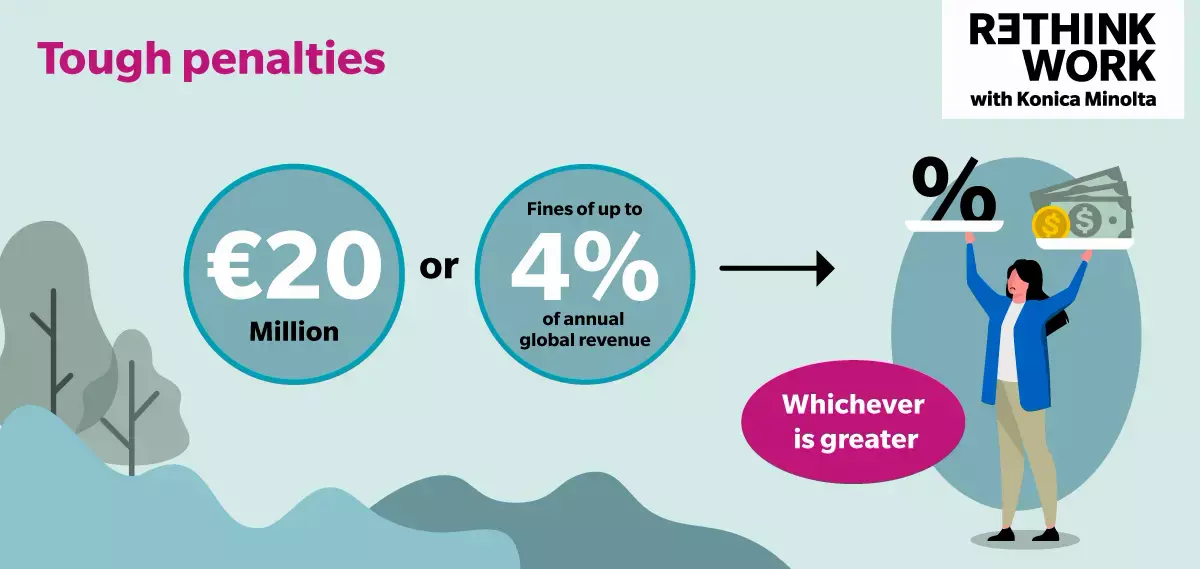In the 1,000 days since the European Union General Data Protection Regulation (EU GDPR) came into force, businesses of all sizes have struggled with compliance, and many have been fined. An intelligent enterprise content solution can help your business gain control over its data — your starting point for meeting the regulation’s compliance requirements more efficiently.
As private individuals, we benefit from the data privacy and data security protections offered by the EU and UK General Data Protection Regulations (GDPR). We have more certainty and confidence about how companies and public bodies store, use and protect our personal data. We also have more rights over our personal data — we can ask what data a company holds about us, ask for it to be deleted, and more.
For organisations, however, being compliant with GDPR requirements can be challenging. Inability to comply can lead to large fines, not to mention reputational damage and loss of customer trust.

In the 1,000 days since the EU GDPR came into force in May 2018, businesses large and small have been fined for non-compliance. In 2021, more than 130,000 personal data breaches were notified, and fines totalling nearly €1.1 bn for GDPR violations were issued¹. Among the organisations to be fined was Amazon; which, in July 2021, was hit with the largest GDPR fine to date — $887 million — for not obtaining proper consent from users regarding their personal data.²
Although larger companies may face higher fines, small and medium-sized companies have also been fined for non-compliance. The GDPR Enforcement Tracker provides an overview
Why is GDPR compliance challenging for companies?
To comply with GDPR, organisations must be able to respond, within given timescales, to data subject rights — requests by individuals (‘data subjects’) relating to their personal data, such as asking for it to be deleted. Organisations must also be able to meet their data protection obligations, which comprise:
- Knowing what personal data they hold, and how and why it’s being processed
- Protecting that personal data from events like unauthorised access, loss, or inadvertent destruction
- Notifying the authorities and the affected data subjects of any personal data breaches



